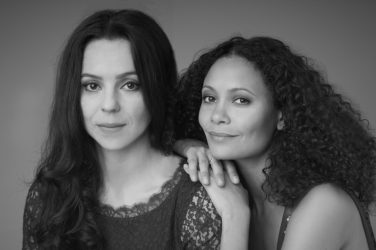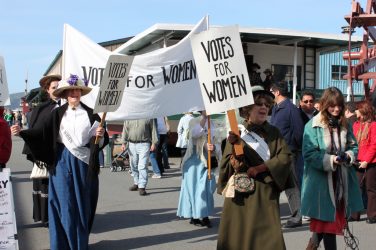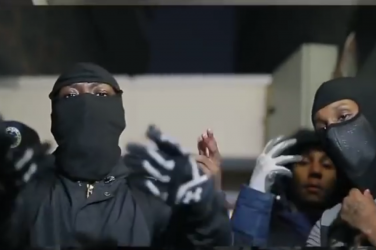E&M speaks to Zdeněk Holý, the producer of Daniel’s World, a film that questions our attitudes towards paedophilia.

The word paedophile is one that causes a strong reaction just by being mentioned. This reaction is often of discomfort accompanied with negative feelings and scary thoughts. It is, quite simply, the most taboo topic there is in our society. A widely criminalised view on paedophiles is not only current, but it haunts millions of parents and children worldwide. A simple Google search will support these affirmations. However, if we stick to definitions, the Oxford English Dictionary describes it as “a person who is sexually attracted to children.” From this neutral perspective, a door opens to discuss the topic.
This is how the Czech documentary film Daniel’s World (Danielův svět) starts. By making the distinction between a paedophile and child molester (two words that always seem to go hand in hand), director Veronika Lišková poses the first question to the audience, even before the first image of the film appears. What follows is 72 minutes of screen-time that present even more questions about our own views on paedophilia and, albeit subtly, urge us to take position or, at least, to reflect upon the topic with an open mind.
The scenario is in equal measure uncomfortable and devastating from the get-go. Daniel, a 25-year-old literature student and author, is attracted to children. More specifically, he is in love with a six-year-old boy.
Producer Zdeněk Holý kindly agreed to answer some questions via email to talk in more detail about the film.
E&M: The documentary proves to be a challenge for the viewer when it comes to the perceptions and assumptions about paedophiles. Being such a difficult topic to deal with, why did you decide to make a documentary that shines a new light on it? How did your own views change while working on it?
ZH: We could have presented some facts about paedophilia, but we did not think that facts are enough to change the attitude of the public towards the topic. We decided to find one human fate, someone the audience can feel compassion for. I would say that instead of a scientific documentary working with facts we chose the genre of humanistic portrait.
E&M: What made you decide to contact Veronika Lišková to direct it? Do you think the topic would be treated differently if it was made by a male director?
ZH: I read one screenplay Veronika wrote. It was not yet developed but I saw her ability to take the perspective of all protagonists. And that was the thing that convinced me to appoint her as a director. I was sure she could show a paedophile as a human being.
E&M: The film treats one of the most taboo topics in society – if not the most – and tries to humanise the main character Daniel. How did you find him and why did you decide to tell his story?
ZH: We held something like “documentary casting”. Veronika met at least ten paedophiles. Only Daniel was willing to show his face. That was important as we wanted to present paedophiles as human beings, not as perverts hidden behind the veil.
E&M: What has been the general reaction in the Czech Republic? Has it been different in other European countries?
ZH: The reactions are mostly the same; the audience is surprised that paedophiles are also human beings. There is a little difference in reception due to different history in Eastern and Western Europe. We in the Czech Republic / Czechoslovakia did not have such a strong political movement for sexual emancipation. So there was never political demand to legalise sex with children as it was in the programme of some green parties in Western Europe. Because of that, I think we don’t have such a bad conscience about this topic so we can talk about it little bit more freely.
E&M: Do you think other collectives that are still fighting for their rights are more understanding of paedophiles?
ZH: I do not think so as paedophiles don’t fight for any rights because the right to have sex with children is unthinkable for the majority of the ones we met. They want at least one thing: that people would differentiate between notions of criminal and paedophile, that paedophile does not automatically means child molester.
E&M: If you leave the topic of paedophilia aside, the film ultimately shows the tragedy behind the fact that someone will never be able to share their life with someone else. Was this intentional or do you think that happened naturally?
ZH: It was intentional. The fate of a paedophile is quite exceptional. They will never have the partner they yearn for. If they fall in love, they can’t accommodate to the fact that she or he gets old, they are sentenced to solitude and have to bear the burden that society hates them. It is no surprise that a lot of them commit suicide. But there are many other people that have to fight all their lives with some unpleasant tendencies complicating their existence.
E&M: While the film aims to separate the idea of a paedophile from that of a child molester, you decided to include scenes like the one of Daniel in his room, pants down, in the dark looking at his computer and the group of paedophiles looking at a playground and commenting on children, which reinforce the stereotypical image the general public has of paedophiles. Why did you decide to show this?
ZH: We did not want to paint the problematic with some nice colours. There are a lot of dangerous paedophiles. We did not want to get from one extreme to the other.
E&M: Do you think the word paedophile, which is still used as an insult and has a lot of bad connotations attached to it, can be reclaimed by the collective in the same way that queer or dyke have been reclaimed in the past?
ZH: I hope so. It depends mostly on the media and we are convinced, at least in the Czech Republic, the film slightly changed their attitude.
E&M: After watching the film, the main goal of paedophiles (or at least that of Daniel) seems a bit abstract. What do you think it is the best way for paedophiles to live? Is discussion of the topic enough?
ZH: To be honest I do not know. As a producer I usually know what to think about the film I produce, about its topic, but not in this case. What I know for sure is that we need a proper public discussion without prejudice and knowing facts but this has not happened yet.
Daniel’s World can be viewed online via the Doc Alliance Films website (streaming fee applies).
 About the interviewee
About the interviewee
Zdeněk Holý graduated from Palacký University Olomouc from the branch of film and theatre studies. He started his career as a film critic and lately editor in chief of film magazine Cinepur. For four years, he was the director of academic publishing house of AMU. He contributed as the author of the original idea to the film Daniel´s World and as a screenwriter to scientific documentary Whose is My Child (2014) and webseries Laydies and Genitalmen (2013).
Featured photo courtesy: Zdeněk Holý | © Vernes










